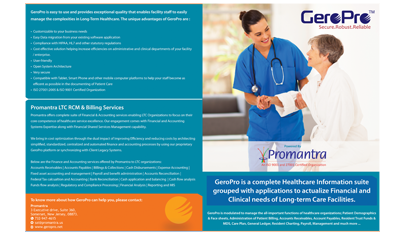Avoiding Claim Denials in Skilled Nursing

For skilled nursing facility providers (SNF providers), claim denials are more than just paperwork headaches---they're lost revenue, delayed cash flow, and wasted staff time. According to industry reports, nearly 10% of claims are denied on the first submission, and many are preventable with the right systems in place, including proper Medicare provider enrollment.
The good news? By recognizing the most common mistakes, SNF owners and operators can protect revenue streams and strengthen financial health. Let's break down the top three pitfalls---and how you can avoid them while ensuring compliance with provider enrollment and Medicare enrollment requirements.
Mistake 1: Skipping Thorough Eligibility & Authorization Checks
One of the biggest contributors to denials is inadequate upfront verification. When residents' insurance eligibility or authorizations aren't confirmed properly before services are provided, facilities risk rejections from payers. This often stems from incomplete provider enrollment processes.
Real-world example: An SNF provider in Texas lost weeks of reimbursement because a resident's secondary insurance wasn't properly verified at admission. By the time the error was caught, the claim had already aged beyond easy correction, highlighting the importance of thorough Medicare provider enrollment procedures.
The Fix: Implement systematic eligibility and authorization verification before billing. Automating this process reduces errors, improves compliance with provider enrollment requirements, and prevents costly rework.
Mistake 2: Inaccurate or Incomplete Charge Entry
Another common reason for denials is missing or misreported charges---daily rates, ancillary services, or bundled room/utility/food (RUF) charges. Even small inconsistencies create red flags for payers and may violate reporting requirements and disclosure requirements set by Medicare and other insurers.
Real-world example: A facility in Florida discovered that inconsistent capture of therapy charges was causing underbilling and triggering partial denials. This not only cut into revenue but created trust issues with their payer partners and risked non-compliance with Medicare enrollment standards.
The Fix: Use a precise, centralized charge entry system that captures every service accurately, from cable and coffee charges to therapy sessions. Ensuring completeness means you're not leaving money on the table and staying compliant with all reporting requirements.
Mistake 3: Inefficient Billing & Claims Submission
When billing processes rely on manual workflows, delays and inconsistencies are inevitable. Different payers (Medicaid, BCBS, UHC, Molina) have unique submission formats and requirements. A mismatch often means rejection and can lead to complications in the provider enrollment revalidation process.
Real-world example: An SNF submitting manual claims through portals was experiencing delays of 30--45 days in cash flow. After transitioning to automated 837 file submissions for high-volume payers and adhering to sub-regulatory guidance, their denial rates dropped dramatically.
The Fix: Automate billing operations wherever possible while maintaining streamlined manual processes for smaller payer submissions. This ensures compliance with various payer requirements and speeds up reimbursements.
Staying Compliant: The Revalidation Process
SNF providers must also be aware of the ongoing provider enrollment revalidation process. Medicare requires periodic revalidation to ensure that enrollment information is up-to-date and accurate. Failing to complete revalidation applications on time can result in enrollment suspended status, further complicating claim submissions and reimbursements.
Where LTCPro Comes In
At LTCPro, we specialize in helping SNF providers stay ahead of denials and maintain compliance with:
- Pre-billing eligibility & authorization checks
- Accurate charge entry capturing all revenue streams
- Automated billing solutions customized for multiple payers
- Payment posting systems that improve cash flow visibility
- Support for provider enrollment resources and enrollment resources
- Guidance on the revalidation process and revalidation applications
- External user services to assist with Medicare enrollment and ongoing compliance
Our goal is simple: reduce denials, protect revenue, and free administrators to focus on resident care while ensuring all provider enrollment and regulatory requirements are met.
Final Thought
Denials may feel inevitable, but with the right processes and partners, they can be minimized. For SNF providers, avoiding these three common mistakes means stronger financial health, better compliance with Medicare provider enrollment standards, and more time where it truly matters---at the heart of resident care. By leveraging comprehensive provider enrollment resources and staying on top of the revalidation process, facilities can ensure they remain in good standing with Medicare and other payers, reducing the risk of claim denials and maintaining a steady revenue stream.
A perfect fit for Skilled Nursing Facilities, Assisted Living Facilities, Home Health, Hospice and Other Day Care Centres.
Download BrochureRequest a demo


























